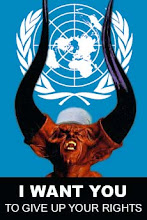 The Washington Post has a timely article about the psychology of believing news reports, even when they've been retracted - suggesting that if false information is presented early, it is more likely to be believed, while subsequent attempts to correct the information may, in fact, strengthen the false impression.
The Washington Post has a timely article about the psychology of believing news reports, even when they've been retracted - suggesting that if false information is presented early, it is more likely to be believed, while subsequent attempts to correct the information may, in fact, strengthen the false impression. The article starts with results from a study [pdf] by psychologist Norbert Schwarz who looked at the effect of a government flier that attempted to correct myths about the flu vaccine by marking them 'true' or 'false'.
Unfortunately, the flier actually boosted people's belief in the false information, probably because we tend to think information is more likely to be true the more we hear it.
====================================================

















No comments:
Post a Comment